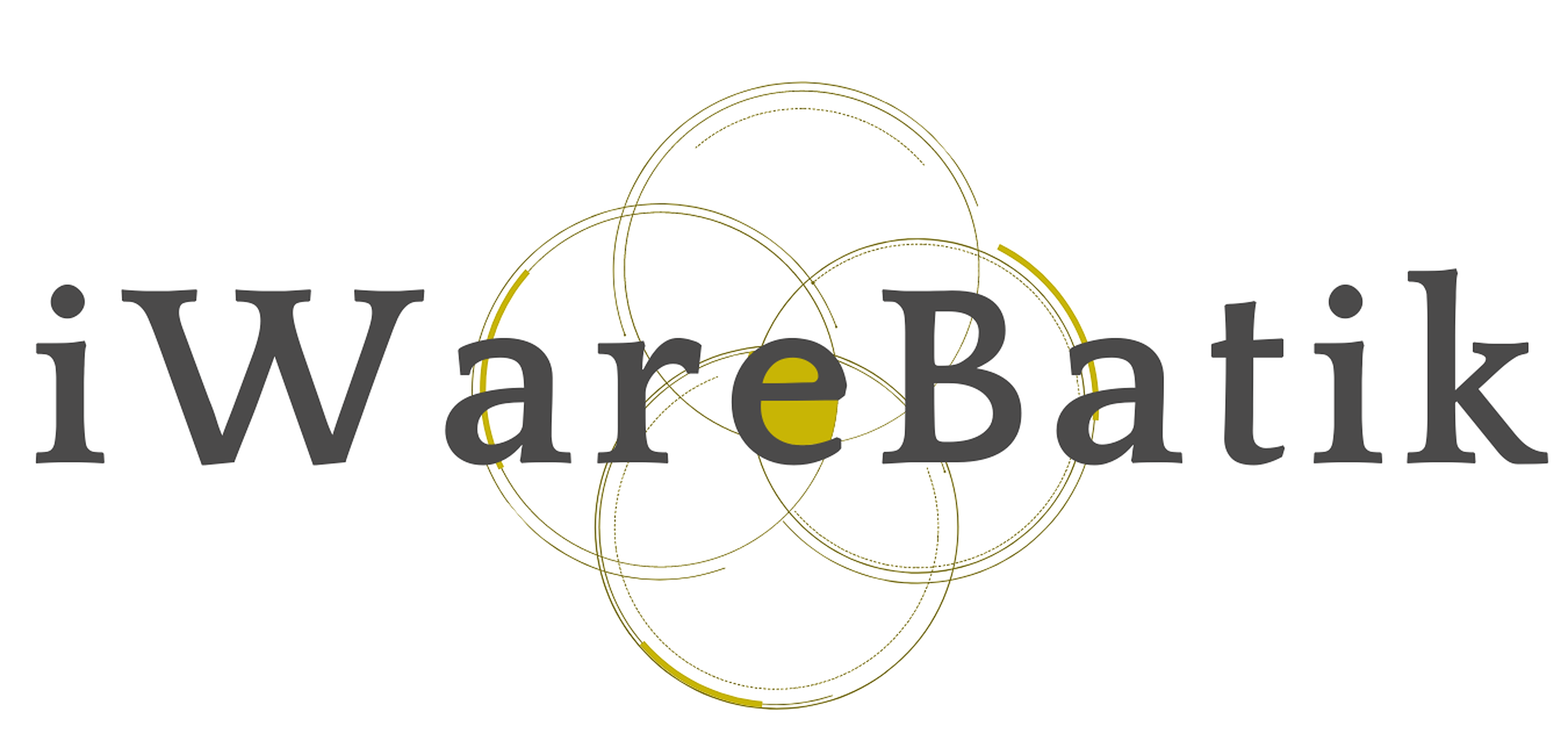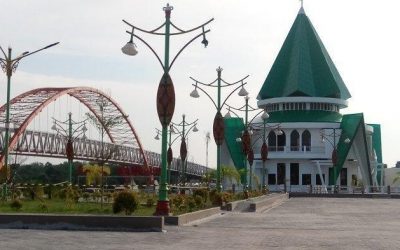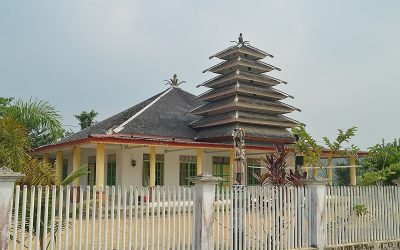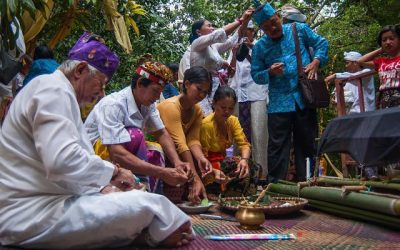Home / Batik Regions – Central Indonesia – Kalimantan Island – Central Kalimantan / Balanga Museum
Cultural Destination
Embrace the spirit of the place!
Balanga Museum

Dayak Historical Objects in Balanga Museum (photo: allindonesiatourism)
Balanga Museum
Originally built as a regional museum, Balanga Museum has many collections on show and in storage, whether cultural, ethnographic, or archeological. As you step into the museum you can really perceive the atmosphere of Dayak people, and you can witness things that belong to some specific phases in the life of a Dayak since his birth.
Tourist Attractions in Central Kalimantan
Palangkaraya City
Palangkaraya city is another unique destination you cannot miss in West Kalimantan. This modern and vibrant city also
Muara Teweh City
Also known as the “water town”, Muara Teweh is the capital of Barito Utara regency. The strangest thing anyone can
Tajahan Tjilik Riwut
Dayak Tribe consider it a very sacred spot. According to their belief, whenever one has
Central Kalimantan
Batik Motifs
Gumin Tambun
Based on Hindu mythology, this motif symbolizes lucks, abundant wealth, and
Kaharingan
The Kaharingan or ‘tree of life’ based on the Dayak tribes’ belief system. This tree symbolizes
Enggang Dayak
Local people beliefs that hornbills are an incarnation of the Commander of the Birds. It has supernatural
Discover
Indonesian
Batik
Motifs
Rumah Mamuju
the Batik motif illustrates the house of Mamuju King with the stairs, located on the left of the wooden stage house
Bintik Tujuh
The Bintik Tujuh (Seven Dots) motif has 7 white spots and green color gradation as
Biji Kopi
The coffee seeds motif illustrates the pride of local coffee specialities in
Gonggong Siput
Gonggong (Strombus Turturella) is one type of sea snail found around
Manguni Minahasa
Manguni is identified as the symbol of the Minahasa people. Manguni is known as a
Tangerang Herang
Tangerang Herang motif is a symbol of Tangerang city. The Tangerang Herang batik motif consists of
Angsa Duo
According to legend, the Angso duo batik motif is a pair of swans that are believed to have led Princess
Pinawetengan
The Pinawetengan Batik pattern was taken from a prehistoric inscription in
Tikar Natuna
The Tikar Natuna motif is adapted from the traditional making of pandanus mats in
Merak Ngeram
The hatching peacock motif has a very deep meaning which refers to the sacrifice and
Tenun Bima
The motifs are adopted from Bima woven textile. This pattern has received a great
Enggang Dayak
Local people beliefs that hornbills are an incarnation of the Commander of the Birds. It has supernatural
Gamolan
This motif illustrates Gamolan, a bamboo musical instrument of Lampung that is
Tifa Totobuang
The batik motifs illustrate Maluku’s traditional music instrument called
Ake Patra
Ake is related to the divinity and the composition of the universe. It is a symbol of
Tengkawang Ampiek
With its many advantages, the Dayaks use this leaf in ritual ceremonies. This plant is a symbol of
Wirasat
Wirasat or divine inspiration is a gift from God. This inspiration is symbolized by
Parang Rusak
Another meaning behind this motif is an unconquerable spirit, symbolized by
Daun Lada Hitam
The black pepper motif represents the main commodity of Bangka Belitung
Tongkonan
Toraja’s traditional house is called Tongkonan. Tongkonan is a place for
Sandeq
Sandeq Boat is a symbol of the maritime importance of the West Sulawesi region. The greatness of
Karawo Mahkuta
Mahkuta refers to Gorontalo’s traditional crown. It represents noble characters of
Keluak Daun Pakis
The word “Keluak” is a Minang language which means twisted or tangled. The Motif of
Gorga Simeol-Meol
The Gorga Simeol-meol is a pattern of plant tendrils. it is regarded as a symbol of longevity and
Pala Salawaku
This motif illustrates the unique weapons of the Maluku region, namely
Durian Pecah
Broken Durian motifs depict the foundation of faith. The second half signifies the mastery of
Sero Tangga
The Sero Tangga illustrates an endearing feeling and sacrifices of a person to fulfil
Mahkota Siger
Siger is the crown of a noblewoman in ancient time. It is a symbol of femininity, strength, and
Bomba Mawar
This motif means sacred love for family, kingdom, and God; It also illustrates
Gurdo Solo
Gurdo or garuda bird is the mount of the Indian god Vishnu. As the Sun Bird,
Buketan Bali
The Balinese bouquet (Buketan Bali) is a floral arrangement and the name is
Sido Mulyo
Sidomulyo is one of the classical motifs, which is specifically used for the bride’s costume in
Gonggong Beruntun
This motif illustrates that a person should maintain a positive attitude and
Pattimura
Pattimura is the name of an Indonesian hero who fought against colonialism in
Taiganja
Taiganja is a precious gold pendant that shows the social status of the Kaili family. It is
Gentala Arasy
Built as high as 80 meters, the tower also highlights the historical side of
Tanah Liek
The word “Tanah Liek” refers to clay in Minang language. It is also known as
Ikan tambal
The word “Ikan” refers to fish. The philosophical meaning of Ikan Tambal means is
Gajah Way Kambas
The motif illustrates the Lampung’s natural reserve, the Way Kambas. it also symbolizes
Srimanganti
The name of the Srimanganti motif is derived from Palace’s hallway that connects to
Parang Seling
Parang Seling or “alternating daggers” is a royal batik motif. It is a feminine variant of
Bultiya
The word ‘Bultiya’ is an acronym of the three major tribes in North Kalimantan, namely
Tabir Tanjung
Tanjung flower is a type of Cherry tree flower, which is commonly found in
Besurek Rembulan
This batik illustrates praise for God who created the wonderful universe
Desa Na Tolu
The Desa Na Tolu characteristic pattern symbolizes the Batak philosophy of existence and
Raja Ampat
Raja Ampat motif represents the marine life at Raja Ampat archipelago in
Pucuk Rebung Riau
Pucuk Rebung symbolizes heart determination in achieving goals, good luck, and
Bale Lumbu
This motif signifies the welfare of the ancient Sasak society. Bale also symbolizes the
Daun Sirih
This motif illustrates betel leaves that are used by Lombok communities as traditional
Sekar Jati
Sekar means flower and Jati refers to teak trees that symbolizes a strong mental character that
Tampuk Manggis Sasirangan
The motif illustrates the philosophy of the mangosteen fruit, which is
Besurek Rafflesia
The term “Basurek” refers to a textile that contains letters or inscriptions
Kawung
The Kawung motif was created by Sultan Agung Hanyokrokusumo (1593 – 1645) as a symbolic gift for
Cengkeh
The clove flower motif is the main commodity of the Tolitoli Regency. This motif represents
Kaharingan
The Kaharingan or ‘tree of life’ based on the Dayak tribes’ belief system. This tree symbolizes
Kasih Tak Sampai
‘Kasih Tak Sampai’ is an idiom in the Indonesian language which refers to
Kaganga Tanah Rejang
If Batik Besurek combines Arabic calligraphy motifs, then the Kaganga batik takes
Hiu Taliyasan
Indonesia is also home to the world’s largest fish, the whale shark (Rhincodon typus). Hiu Taliyasan refers to
Kain Cual
Cual textile tradition has existed since the 17th century. The word “Cual” refers to
Honai
The Honai is inspired by the traditional house of the Papuan community living in
Singayaksa
The Singayaksa motif comes from the name of a place where Sultan Hasanuddin used to
Burung Bidadari
Bidadari birds are endemic birds in Halmahera. This motif represents an
Insang Ikan
Insang refers to the gills of the fish. This is a typical pattern of Malay ethnic who inhabits
Tubo Kelapa
Coconut tree is a symbol of a good character and strong mentality. It illustrates the more success a person, the more
Jupri Kembang Teh
Kembang Teh illustrates the tendrils of tea plants that grow in the highlands of
Lok Baintan Floating Market
As you can imagine, the most authentic thing is that you can buy things and even
Karawo Pinang
Pinang refers to the Palm areca tree. This motif is considered as the original
Prada Papua
The word “Prada” in the Javanese-Indonesian dialect means a batik textile that
Gumin Tambun
Based on Hindu mythology, this motif symbolizes lucks, abundant wealth, and
Daun Simpor
This motif is inspired by the Simpor plant (Dillenia Suffruticosa) which is a typical
Sekomandi
Its philosophical meaning is the eternal union which refers to a saying “until death do us part”





